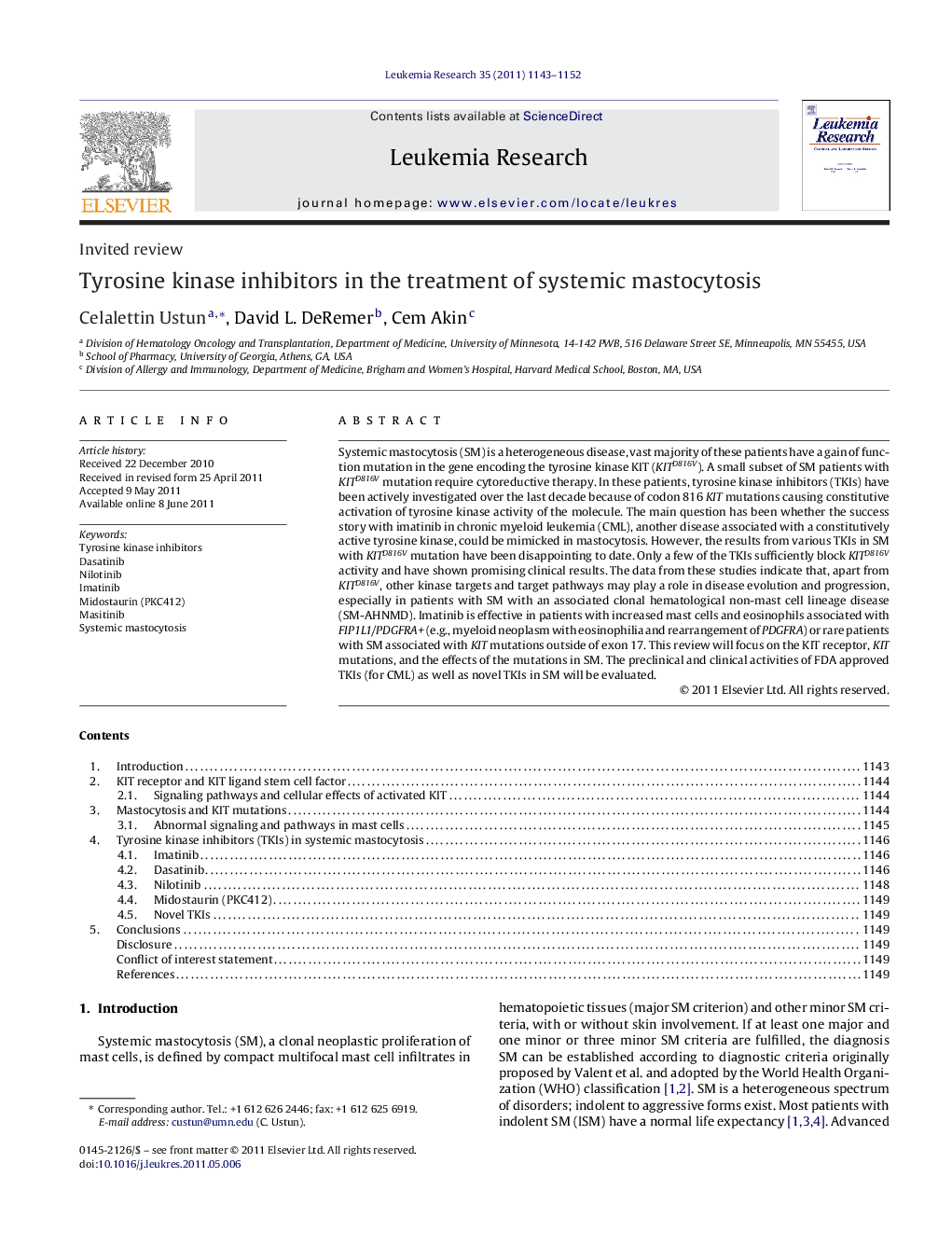| Article ID | Journal | Published Year | Pages | File Type |
|---|---|---|---|---|
| 2137273 | Leukemia Research | 2011 | 10 Pages |
Systemic mastocytosis (SM) is a heterogeneous disease, vast majority of these patients have a gain of function mutation in the gene encoding the tyrosine kinase KIT (KITD816V). A small subset of SM patients with KITD816V mutation require cytoreductive therapy. In these patients, tyrosine kinase inhibitors (TKIs) have been actively investigated over the last decade because of codon 816 KIT mutations causing constitutive activation of tyrosine kinase activity of the molecule. The main question has been whether the success story with imatinib in chronic myeloid leukemia (CML), another disease associated with a constitutively active tyrosine kinase, could be mimicked in mastocytosis. However, the results from various TKIs in SM with KITD816V mutation have been disappointing to date. Only a few of the TKIs sufficiently block KITD816V activity and have shown promising clinical results. The data from these studies indicate that, apart from KITD816V, other kinase targets and target pathways may play a role in disease evolution and progression, especially in patients with SM with an associated clonal hematological non-mast cell lineage disease (SM-AHNMD). Imatinib is effective in patients with increased mast cells and eosinophils associated with FIP1L1/PDGFRA+ (e.g., myeloid neoplasm with eosinophilia and rearrangement of PDGFRA) or rare patients with SM associated with KIT mutations outside of exon 17. This review will focus on the KIT receptor, KIT mutations, and the effects of the mutations in SM. The preclinical and clinical activities of FDA approved TKIs (for CML) as well as novel TKIs in SM will be evaluated.
